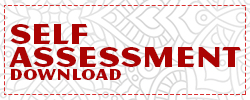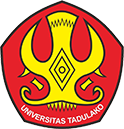TOXIC PARENTS PADA PODCAST
Studi Deskriptif Kualitatif Resepsi Khalayak Dewasa Awal Terhadap Podcast Curhat Babu Episode “Bisakah Kita Mengubah Orang Tua Kita?”
DOI:
https://doi.org/10.22487/ejk.v9i2.374Keywords:
Podcasts, Reception Analysis, Toxic ParentsAbstract
The term toxic parents is being discussed lately because many Indonesian parents are learning to be better mothers and fathers by avoiding their parent’s mistakes. Toxic parents are parents who have negative parenting patterns that are consistently and dominant in their children's lives, including abuse, violence, and humiliation that can cause trauma, mental damage, and harm the child in the long term. Considering that many young people feel related to the issue of toxic parents, the podcast Curhat Babu tries to raise this issue. This study aims to find out how early adults accept toxic parents on the episode of Curhat Babu podcast “Bisakah Kita Mengubah Orang Tua Kita?”. This study uses descriptive qualitative method. Data collection techniques used are in-depth interviews and documentation. This study uses a reception analysis of Stuart Hall's Encoding-Decoding model which divides the audience's meaning into three positions: dominant-hegemonic, negotiated, and opposition. The results showed that the reception of the informants varied, but tended to be in a dominant position, where the audience accepted the dominant meaning in the podcast as whole which states that children cannot demand to change parents so the control is on themselves to break the toxic parent’s chain. Life experience, knowledge, and religion factors influence the various meanings and receptions of the informants.







